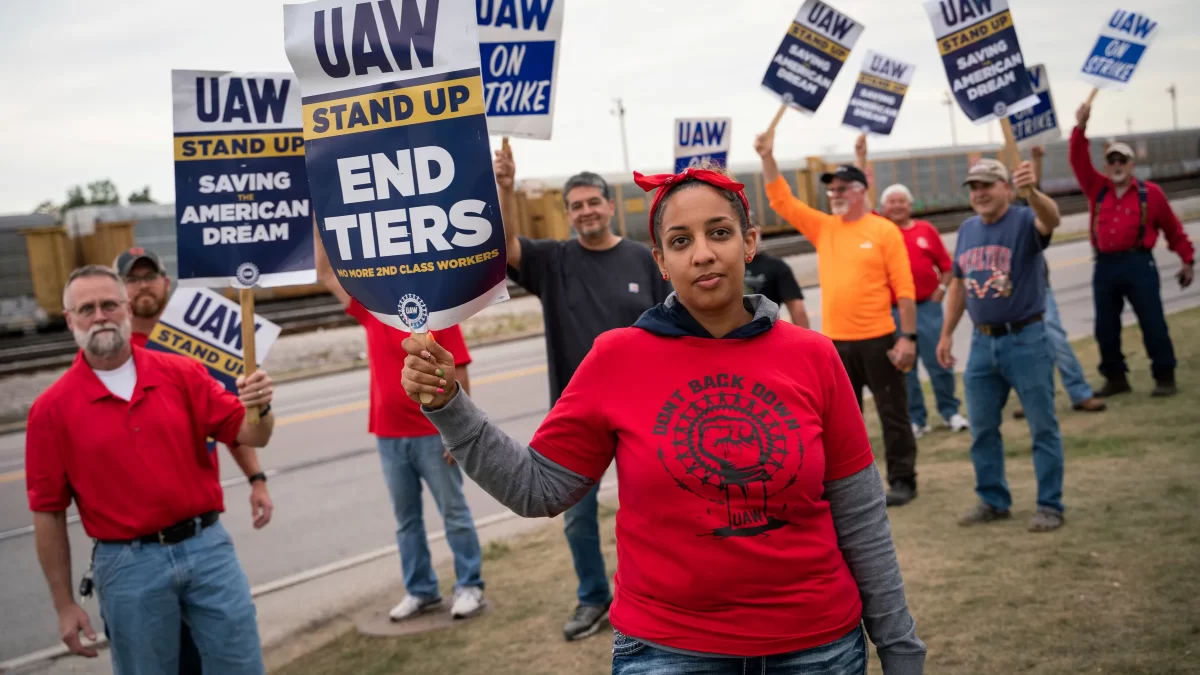On Tuesday Sept. 26, 2023, President Joe Biden joined the United Auto Workers (UAW) labor union strike in Detroit, Michigan to advocate for a 46% increase in wages, a 32-hour base work week along with better retirement and medical benefits. General Motors, Ford Motor Company and Stellantis are companies currently targeted in Detroit, which provide employment to thousands of workers, over 25,000 of which have protested in Detroit alongside thousands more throughout the country.
President Biden walked the line greeting and encouraging protesters, stating, “you deserve a significant raise.” President Biden’s protest with the UAW makes history as the first time a sitting president visited a picket line. The show of support for blue-collar workers from the president has become a key factor for the 2024 presidential election, as Michigan is a swing state that has swayed both towards democratic and republican candidates.
Shawn Fain, president of the UAW, said during a Facebook Live video chat that, “record profits mean record contracts. While big [executives] have used those extreme profits to pump up their pay, our members have fallen further and further behind. The rich are getting richer while the rest of us are getting left behind.” According to the Economic Policy Institute, the “Big Three” auto companies increased profit by 92% from 2013 to 2022, which totaled to $250 billion.
More recently on Monday, Oct. 2, 2023, nearly 4,000 UAW members reached a five-year tentative agreement with Mack Trucks to increase wages and employee benefits for supporting the auto workers and their families. The Anderson Economic Group, a top financial consulting firm based in East Lansing, Michigan, has estimated that 143,000 UAW members on strike would result in economic losses upward of $5 billion after just 10 days. TheAnderson Economic Group’s CEO Patrik Anderson says, “ in 2023, there is the potential that a strike could involve more manufacturers, more workers, and more plants. If that happens, even a short strike would impact economies throughout Michigan and across the nation.”
As auto workers continue to protest, the auto industry loses vital production and profit. The loss of factory employees has reduced automobile part production and contributes to significant changes in the pricing of Ford and Chevrolet vehicles. Moving forward, the “Big Three” must make crucial decisions for the future of their respective companies and employees to guarantee the safety of their businesses.










Patricia Karban • Oct 12, 2023 at 11:52 am
Thanks for writing this article full of true facts about the automotive negotiations. I appreciate learning about the potential impact these strikes will have on our economy.
Keep up the great reporting Jacob!